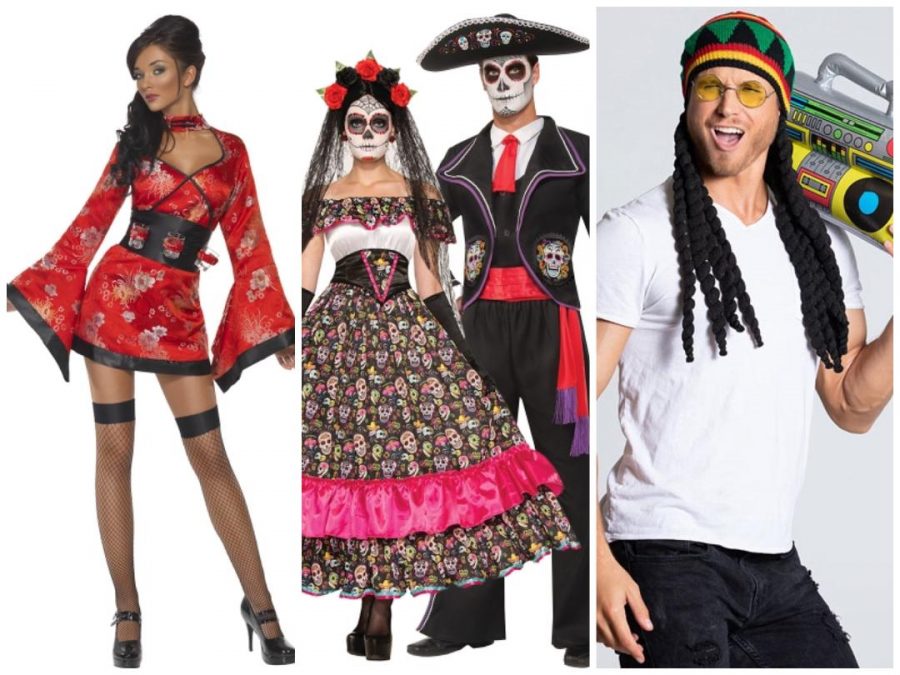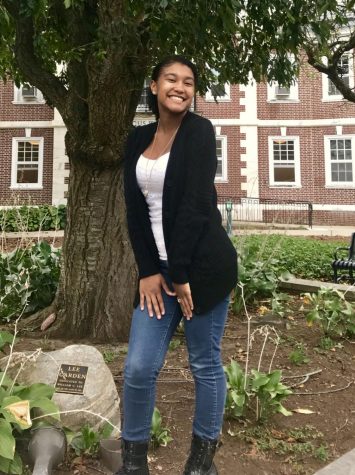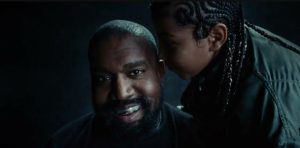Culture Is Not A Costume
Stereotypes of various cultures becoming sexualized or goofy has become common for Halloween costumes.
October 30, 2019
It happens every Halloween: pumpkins are carved, children go trick-or-treating and then there’s always that one costume at the party which makes you think: what the hell was this person thinking? I’m not talking about the couple dressed as a hunter and a deer, even though that is definitely one that will make you cringe, but I mean the girl dressed as a hula girl or the guy pretending to be Rastafarian.
Witnessing someone take these cultures and beliefs and morph them into generic, inappropriate costumes to be seen as funny is offensive and dehumanizing quite frankly. What may seem as an opportunity to get dressed silly is actually just a form of cultural appropriation.
A few years ago, Teen Vogue created a video with girls of different ethnicities addressing stereotyped costumes of their culture. Each girl saw the costumes as insensitive for butchering their culture by depicting the image of savage-like behavior or sexualizing traditions. For Cashman Aiu, seeing girls dressed as hula girls disrespected the history of her Hawaiian background.
“One of the things about Hawaiian culture that not a lot of people know is that historically it was illegal to practice anything related to native Hawaiian culture,” Aiu stated. “So my grandmother is in her 70s and is finally learning how to dance hula. And she’s been creating her hula skirt and lei for weeks now and this is nothing what it looks like.”
What many fail to realize is that the strong symbols within these costumes, such as hairstyles, apparel prints and makeup, often correlate to historical references in each background.
“This costume is extremely hurtful, not only to myself but to the generations that had to go through this erasure,” Aiu continued, as she cried looking at the model dressed in cheap, synthetic flower accessories and a plastic grass skirt.
“Halloween would be the worst time to co-op a person’s culture because it’s a day of dressing up as things that are completely out of the ordinary, old or very provocative,” Gianna Collier-Pitts added. “Wearing somebody else’s culture that day is incredibly offensive as you are saying their culture is [different] in a way that is funny or humorous.”
As an African-American woman, Collier-Pitts found afro wigs to be one of the bigger issues with costumes referencing her culture as it is common for people of color to be stigmatized for their hair texture on a daily basis— which I couldn’t agree more with. Anytime I see a person wearing an afro wig with a pick on Halloween, I consider gauging their eyes out with said pick.
I’m sure when people are deciding what they will be dressing as for Halloween there is no intentional malice involved; most of the times, girls are just trying to look sexy and guys are trying to get a good laugh. But there is nothing comical about Rastafarianism, as it is an Abrahamic religion and social movement that was created for black slaves to reconnect with an idealized Africa, therefore wearing fake dreads is unacceptable. Maybe you could go dressed as an athlete or an astronaut instead.
And sure the idea of dressing as Pocahontas sounds great but when taking a look at the significance behind their feathers and war paint or the number of Indigenous people who lost their lives, I would strongly reconsider it. Maybe try to recreate a childhood cartoon and toy because that would definitely be more appropriate.
In general, people should really think over what they dress as for Halloween. Here’s some food for thought: would you be offended if you were made into a costume?







